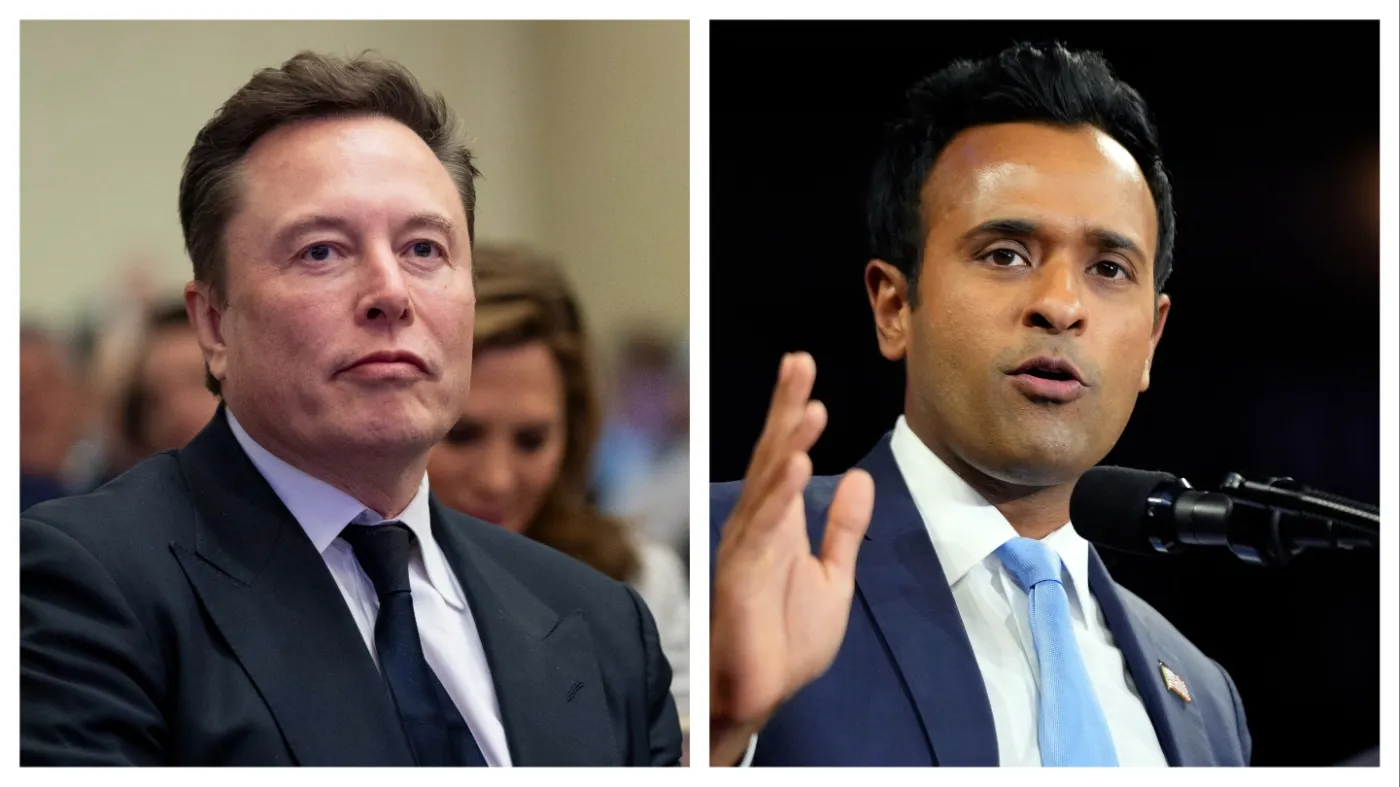Musk and Ramaswamy Lay Out Plans for Mass Federal Layoffs and Regulatory Rollbacks

Streamlining Government: Musk and Ramaswamy's Vision
Tech entrepreneurs Elon Musk and Vivek Ramaswamy have unveiled a strategy for substantial federal workforce reductions, advocating for the elimination of numerous government regulations under President-elect Trump. They chair a new efficiency panel aimed at identifying thousands of regulations for removal. In a recent op-ed, they emphasized that achieving efficiencies through executive action could lead to 'mass head-count reductions' in government roles.
Regulatory Rescissions and Administrative Cuts
Musk and Ramaswamy set forth three pillars of reform: regulatory rescissions, administrative reductions, and significant cost savings. They argue that many federal regulations currently exceed agency authority, creating a landscape ripe for re-evaluation. The entrepreneurs contend that cutting regulations inherently justifies workforce reductions, asserting that a streamlined regulatory environment demands fewer employees to enforce.
- Panel leadership includes influential tech figures
- Focus on limiting federal agency scopes
- Potential resistance from civil service protections
Challenges Ahead for the Government Efficiency Panel
Despite their ambitious proposals, challenges loom for the effectiveness of the efficiency panel. Operating in an advisory role, the panel could encounter obstacles from Congress and executive branch interests. Nonetheless, Musk's strong ties with Trump may facilitate the desired changes.
Impacts on Federal Employment and Services
With plans aimed at slashing unauthorized funding, the repercussions could extend into vital public services, including health care and space exploration initiatives. Federal employees are preparing for formidable changes, expressing concerns over their job security amid the proposed cuts. Following Trump's recent victory, the spotlight remains on these ambitious governmental reforms led by Musk and Ramaswamy.
This article was prepared using information from open sources in accordance with the principles of Ethical Policy. The editorial team is not responsible for absolute accuracy, as it relies on data from the sources referenced.